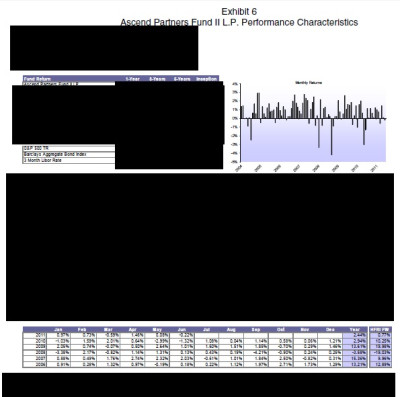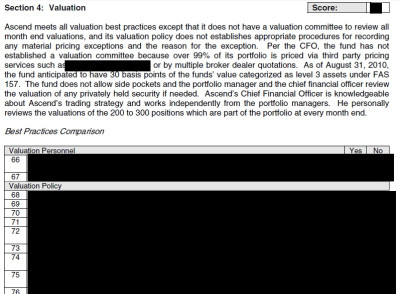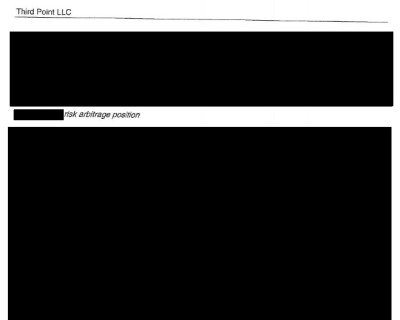Former MIT Dean & Son Get 45 Months in Prison for Hedge Fund Scam
Thursday, December 17, 2015
GoLocalProv News Team
Former associate dean of the Massachusetts Institute of Technology, Gabriel Bitran, 70, and his son Marco Bitran, 40, were each sentenced to 45 months in prison, three years of supervised release, forfeiture and restitution of over $11 million by U.S. District Court Senior Judge Mark Wolf.
The sentencing comes after the two former hedge fund managers were found to have been misleading investors into investing over $500 million in their fraudulent hedge fund business.
The Crime
GET THE LATEST BREAKING NEWS HERE -- SIGN UP FOR GOLOCAL FREE DAILY EBLAST
From 2005 through 2011, Gabriel and Marco Bitran solicited and maintained investors in their hedge fund and investment advisory businesses through false claims that, for eight or more years they had delivered average annual returns between 16 and 23% with no down years.
The Bitrans told investors that the money in their hedge funds would be invested according to a mathematical trading model which was developed by Gabriel Bitran and based upon his MIT research.
The Bitrans also hid from investors that their hedge funds were funds of funds, meaning hedge funds in which values of investments are determined by the value of investments in other independently managed hedge funds.
Investigators catch on
In the fall of 2008, several of the Bitrans' hedge funds had major loses, resulting in investors losing 50-75% of their principal. As their funds are going through losses, the Bitran's redeemed about $12 million of their own money from the funds, meanwhile deferring other investors requests for redemption.
In January 2009, examiners from the United States Securities and Exchange Commission learned of the Bitrans' performance claims and asked for supporting documentation while investigating victims of the Madoff fraud.
The Bitrans made false statements to the SEC examiners and then provided fake records.
From 2009 to 2010 the Bitrans continued to take steps to shield their personal assets by moving them out of their businesses and into entities with less obvious affiliations.
The Bitrans lost over $140 million of their investors' principal.
The case was prosecuted by Assistant U.S. Attorneys Sara Miron Bloom, Brian Pérez-Daple and Mary Murrane of Ortiz’s Criminal Division.
Related Slideshow: Hedge Fund Reports Censored
Below are excerpts of the redacted reports on hedge funds the state Treasurer provided to GoLocalProv. The documents are known as Due Diligence reports. They are used to help the State Investment Commission evaluate hedge funds before making decisions about investments. There are two types of the reports: one on the fund’s investments and one on the fund’s operations. With each excerpt, is a brief description of the information it contains.
 View Larger +
View Larger +
Prev
Next
Hedge Fund Performance
Investment Due Diligence Report
August 2011
Hedge Fund: Ascend Partners Fund I and II
Description: The image on the left is from Page 10 of the 17-page due diligence report on Ascend Partners prepared by Cliffwater Associates for the State Investment Commission. In the selected excerpt, just about all the information pertaining to the performance of the hedge fund has been redacted. The section preceding the table states that the second fund launched by the firm had an annualized return of 8.12 percent. The redacted exhibit is said to contain “more detailed performance data” including “statistics pertaining to more recent returns.”
 View Larger +
View Larger +
Prev
Next
Secret Scores
Operations Due Diligence Report
September 2010
Hedge Fund: Ascend Partners Fund I and II
Description: To the left, is the top of the second page in the due diligence report Cliffwater prepared on Ascend Partners. As the context makes clear, no actual proprietary information about the fund itself is discussed in the page. Instead, the “scores” that a reviewer at Cliffwater gave to the hedge fund—on everything from business to risk management are redacted. Even the name of the fund’s external administrator is withheld.
 View Larger +
View Larger +
Prev
Next
No Simple Yes or No
September 2010
Hedge Fund: Ascend Partners Fund I and II
Description: To the left, is the third page of the same document from the preceding slide. The table appears to be a standard form that Cliffwater uses in its evaluation of all hedge funds. Note that the redactions encompass critical information about the fund’s compliance with SEC regulations and the protections it has for investors—in this case, state retirees. Not only are the standard measures it employs blacked out, but whether the hedge fund meets those measures—a simple “yes” or “no” is blocked too.
 View Larger +
View Larger +
Prev
Next
Veiled Valuation
Operations Due Diligence Report
September 2010
Hedge Fund: Ascend Partners Fund I and II
Description: The valuation process is critical to determining the value of one’s investments. The redacted excerpt shown to the left briefly explains that the hedge fund does not determine the own valuations. Instead, those are determined by third-party services. The report purports to give an example of one of those services. But apparently that too is considered confidential information by state authorities. Notably, even though the hedge fund does not have a valuation committee, the section on the next page about the valuation committee members is still redacted.
 View Larger +
View Larger +
Prev
Next
Short Summary
Operations Due Diligence Report
November 2010
Hedge Fund: Viking Global Equities
Description: The summary section for most due diligence reports on hedge fund operations are usually the least redacted portions of the reports, but not here, where so much has been redacted it’s nearly impossible to infer anything about the information that has been withheld.
 View Larger +
View Larger +
Prev
Next
Behind Closed Doors
Operations Due Diligence Report
November 2010
Hedge Fund: Viking Global Equities
Description: The redactions to the left again raise the question as to how trade secrets and proprietary information are defined by the state Treasurer’s office. Here even attendees at meetings between Cliffwater, the state’s investment adviser, and the managers of the hedge fund under review are blacked out.
 View Larger +
View Larger +
Prev
Next
No Name Partners
Investment Due Diligence Report
January 2011
Hedge Fund: Third Point Partners
Description: Under the state’s interpretation of confidentiality rules it is apparently permissible to name the CEO but not his partners. GoLocalProv checked the firm’s Web site and its current partners who compromise the executive team—including their education and prior experience—are listed. But none of their backgrounds matched those of the partners mentioned here. None of which explains why the names are redacted.
 View Larger +
View Larger +
Prev
Next
What Risk?
Investment Due Diligence Report
January 2011
Hedge Fund: Third Point Partners
Description: To the left is what appears at the top of Page 11 in a 23-page report on investment performance and management by Third Point Partners. The two blocks shown here are in a series of black boxes which supposedly contains examples of the firm’s investment strategy. Here even the subhead describing the investment is partially redacted.
 View Larger +
View Larger +
Prev
Next
Three Strikes
Investment Due Diligence Report
July 2011
Hedge Fund: Winton Capital Management
Description: Many of the redactions are as surprising for what is redacted as for what is revealed. In this table of key staff at Winton Capital Management, most are listed, along with their years of experience and their educational background. The table even notes that the second-in-command position at the firm is occupied by the nephew of its chairman and founder. But three names are deleted for no apparent reason. Were these employees fired? Or did they leave for other work? Either way does such information fall under the category of trade secrets or proprietary information?
 View Larger +
View Larger +
Prev
Next
Dark Money
Investment Due Diligence Report
July 2011
Hedge Fund: Winton Capital Management
Description: One can understand why a hedge fund might not want to disclose details of how it compensates its staff—as that is the primary means of incentivizing high performance among employees. But what about the public’s right to know? Or the right of state employees to know whether their pension savings are supporting outrageously high bonuses for hedge fund executives?
Related Articles
Enjoy this post? Share it with others.























